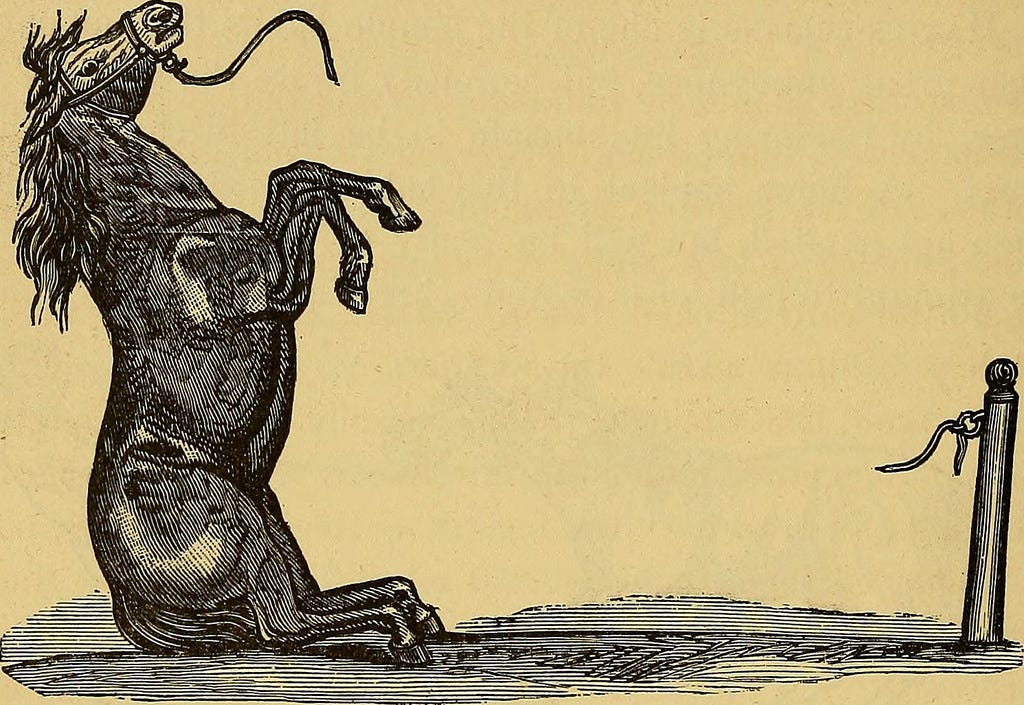This is your fault and we are under no obligation to inform you of anything
They seemed to hide behind the language they used which was 'We don’t do this'

Everyone likes to joke that spending too much time on Twitter is destroying our mental health and that is definitely true but on the other hand it could come in handy in case of a medical crisis. That’s particularly true if you ever find yourself with an exorbitant medical bill or are getting otherwise fucked over by health insurance ghouls. Social media may be your only hope to get anyone to give a shit.
One of the more recent example among many was a young woman who was given a $24,000 bill at a San Francisco hospital after a bike accident. She was only able to get it reduced to $200 after a great piece from Vox shed light on the injustice. Even if hospitals and insurance companies don’t care about you as a human being which they definitely do not they at least still care about being embarrassed publicly.
Isaiah Breen a Minnesota non-profit worker found that out this week.
This year Breen’s health insurance premium was lowered which sounds like great news but of course his co-pay also went up at the same which is the magic of the free market. As a result when he paid his monthly insurance payment to HealthPartners the Minnesota-based health care and insurance provider this December he ended up overpaying. The balance was credited over into January unbeknownst to him so when it came time to pay again he was confused navigating the payment portal they use the the type of convenient and very intuitive system we all know and appreciate. Long story short he ended up being short $79 for the bill in January. When it came time to pay in February he noticed something strange. They had canceled his plan.
He tried to pay his February bill this week but the portal told him he no longer had insurance at all. This was news to him since he got no email, no messages from within the system, no letter, no phone call, no nothing, all of which was problematic enough, but the bigger issue was they had gone and canceled his insurance retroactively stretching back to the last full payment date a month earlier. In the meantime he’d seen his physical therapist and his psychiatrist and his general practitioner which would’ve amounted to $90 in co-pays if he had insurance, which he of course actually had, but by an accounting sleight of hand woops he no longer did. Now he was on the hook for around $1,400.
Needless to say a surprise $1,400 bill would be difficult if not devastating for a lot of if not the majority of people in America where we love our private insurance.
“I called and I was told, yeah, you underpaid by $79 so we canceled your account,” Breen said.
“I told them everything I told you and their response was not just like cold they were almost chiding me saying ‘This is on you, this is your fault, and we are under no obligation to inform you of anything, it’s your responsibility.’”
He talked to three different people after being passed around in the way we all know when we can’t get a straight answer or for anyone on the customer service line to consider our humanity. “I talked to a rep, a supervisor, and a team lead, and they all said the same thing the same way,” he said.
“They seemed to hide behind the language they used which was ‘We don’t do this.’”
The implication was that they aren’t legally required to inform enrollees that their coverage is about to be canceled he said.
By this time Breen, who works in communications at a non-profit called Jewish Community Action in Minnesota, and previously worked on staff for former Rep. Keith Ellison, had tweeted about his frustration where myself and a number of other reporters he knows on Twitter started to become interested.

I emailed HealthPartners who had a net income of $175.5 million on roughly $6.6 billion of revenue in 2017 and asked if this was typical practice to throw enrollees off their plans out of nowhere.
I asked:
Can you confirm for me that HP does not alert customers with any sort of warning that their bill is about to be underpaid and cancels coverage immediately upon a late payment?
Is it true that a late payment retroactively cancels coverage for the entire month preceding meaning customers would be required to pay for any care they received during that time at full price?
And is it true that HP "used to reinstate plans in circumstances like this, but 'stopped doing so when we realized nobody else did'" ?
I understand you can't comment on specific cases but in general.
“Unfortunately we cannot discuss specific details, but we are working closely with the member to better understand the situation,” Becca Johnson the communications supervisor told me around 2:30 on Thursday afternoon.


Not long after that a woman named Cindy Heuer, the director of health plan operations, called Breen to tell him, as he explained it, “tough shit. they won’t be reinstating my plan.”
“The icing on the cake here is that if you are dropped from your insurance for non-payment, which technically is what happened here, that does not count as a qualifying life event on the insurance marketplace on the federal level, not just Minnestota,” Breen told me. “So if you’ve passed open enrollment you can no longer get insurance.”
Not only had he been dropped it would be impossible for him to get any other insurance now.
He was lucky, luckier than many whose situations are for worse of course, that he had only had a couple of office visits in the lost month of insurance. If he had had a serious accident or been dealing with an expensive illness he might be on the hook for tens of thousands of dollars.
Breen made calls to the Minnesota Commerce Department, the part of the state government that regulates insurance, and his doctors to ask for any help they could provide.
“Pretty much everyone I spoke to on this issue aside from the HealthPartners reps were kind and helpful and wanted nothing more than to figure this out. The HealthPartners reps could not care less,” he said.

He made a formal complaint through the Commerce Department, and found the contact information of the HealthPartners communications department.
In the meantime a number of Breen’s other reporter contacts began making inquiries including Jennifer Brooks of the Star Tribune.
“I think her inquiring into it is the thing that eventually got them to stop,” Breen told me.
“I am so blessed and thankful and lucky here that I have the kind of community I have, and the network and the contacts,” he said. “Because if I didn’t have as big a Twitter following it wouldn’t have gotten as big as it was, reporters wouldn’t have seen it. If I didn’t already have a relationship with them they might not have been as interested in the story.”
I wrote back to HealthPartners saying I know they won’t comment on an individual case but unless they give me an answer to my questions generally speaking I would have to go ahead on the assumption that it is in fact policy to kick people off insurance without telling them and that they regularly retroactively cancel coverage.
They replied: “Attributing those answers to us are inaccurate. We cannot discuss specific details, but we are working closely with the member to better understand the situation.”
By 5 p.m. on Thursday Breen got a call from Heuer again. Earlier in the day she had had the same story as everyone else which was that it was impossible to do anything and she was sorry but yes we’re technically allowed to do this. He would not be reinstated she said. But this time she had a different story. Upon further review they had decided to reinstate him she said, and six minutes later he checked his account on the portal and it was turned back on.
“I don’t know ultimately what did it. It’s possible that she just had a change of heart I don’t know,” he told me. “I don’t think that’s the case. It is a possibility. What I think happened is you and a bunch of local reporters started calling the communications shop saying is this true is this how you treat people and she got called into a meeting and was told to reinstate this guy. But I had been told by four different people it was against policy and was impossible for them to do.”
“It rocks that this was the resolution to it, but this is the exception to the rule. Every week or so we hear a story about something like this happening and we wring our hands and we’re glad at the end of the story when there is a resolution, but for every one of these stories there are six or seven thousand people who don’t have that.”
“You shouldn’t have to have a following on twitter to get treated like a person,” he said. “You shouldn’t have to be tight with reporters to be treated with dignity.”
On top of his connections he was fortunate in that he was able to spend most of his work day chasing down a solution with his boss’s blessing.
“Most people can’t say that. I’m incredibly lucky to have a boss who was like yeah you gotta figure this out. Even just basic stuff like I knew who to call. I knew who to go to at the Department of Commerce. This isn’t to knock someone else’s intelligence but rather to say that part of class privilege being middle class is knowing how to maneuver through the bureaucracy of institutions in the world. And I think a lot of people don’t have that. I had to fax a bunch of documents since a lot of complaints can only be submitted in writing and I was able to use the office fax machine. If someone else wanted to to do that they might have to go to library with a bag of quarters.”

This next story is heartbreaking and I’d encourage you to go read it although be warned it’s a story of a young woman named Dina Zirlott who was raped when she was seventeen years old and had a baby not long after that. She hadn’t realized she was pregnant until almost the end of her term and by that point the doctors told her that her baby’s brain would never fully develop and she would suffer all manner of hardships and suffering in what would likely be a very short life.
“This condition is not compatible with life, she said with the sort of neutrality someone uses when they are a spectator to disaster.”
Zirlott had already been suffering all manner of trauma in the months since she had been raped but at the time and where she lived in Alabama it was too late to have an abortion.
“I remember curling in on myself in the maternity ward, eighteen years old, retraumatized and flashing back to the attack, paralyzed by indecision. My milk came in, and I was furious ― it felt like a cruel joke. I could not imagine then how this would evolve over a year, how I could be so full of love for this child and also wish she had never been born,” she wrote.
Nonetheless she loved her child and they did everything they could to make sure her life was as comfortable as it could be which considering all of the health problems she suffered from was not very. And then before long and as promised her daughter died.
“If I had been allowed the option to choose a ‘late-term abortion,’ would I?” she asked.
“Yes. A hundred times over, yes. It would have been a kindness. Zoe would not have had to endure so much pain in the briefness of her life. Her heart could have been stopped when she was warm and safe inside me, and she would have been spared all that came after.”
“Perhaps I could have been spared as well.”
It’s a harrowing story to read but it’s not so much the story itself that I wanted to point here but some of the reactions to it as the Republicans are in the midst of pulling together a manipulative abortion panic that they seem to think could be beneficial heading into 2020. One awful response in particular was from Alexandra DeSanctis from the National Review who wrote a piece recently for the Atlantic fear-mongering about abortion legislation in New York and Virginia that the right has already begun lying about.


You might note she didn’t share the link because as she said she didn’t want to direct any traffic to the site but it might be a little more accurate to say she didn’t share it because then people would have been able to see what it was actually was like for someone. It’s a lot easier to demonize women who are faced with such a choice when you don’t hear their own stories in their own words.
Here’s one response from a follower of hers:
“I feel so bad for her daughter for when she eventually finds that article and reads it.”
“Who are these losers? Imagine being this person’s child. Oh my Gd,” wrote another.
“Disgusting. Thanks for not sharing,” added a third.
I’m not sure how anyone could come away from that devastating piece and call what she wrote “waxing poetic” but I’m not a very religious type like DeSanctis I’m one of the bad Catholics so maybe words mean different things to them now maybe they got a different Bible than the one they gave me it’s been a while since I read it so it might have changed a lot and nobody told me.


https://www.youtube.com/watch?v=UqQON-CAL24